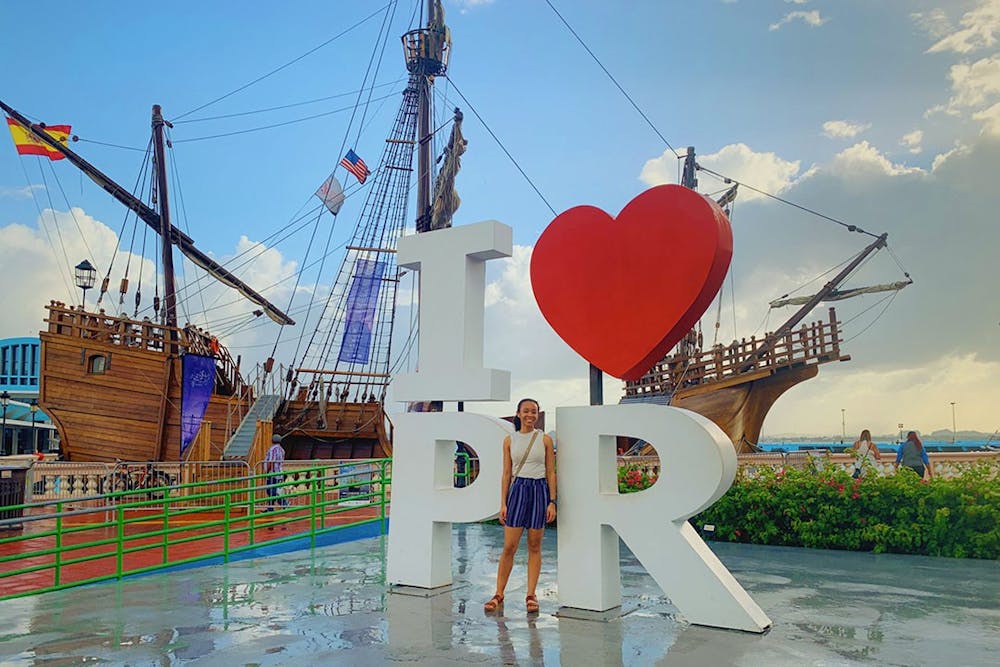Studying abroad can be an exciting prospect for many college students, but the reality of those experiences for Black and minority students comes with its own set of considerations.
Common obstacles in study abroad experiences can include adjusting to a new quality of life, navigating a language barrier or facing an initial culture shock. However, Black students have the added weight of facing discrimination for their race and nationality.
Black and Abroad Gamecocks is a relatively new and small organization aiming to provide mentorship and increase awareness and accessibility to study abroad opportunities for Black students.
Fourth-year math and Spanish student and Black and Abroad Gamecocks Co-President Felicia McGill said the number of Black students that study abroad is low. In a meeting with a group of about 60 Black students, comprised of juniors and seniors, she noted that none had or would study abroad.
Various factors play a role in the lack of traveling for Black students. McGill said one was familiarity with the concept of study abroad from family members and friends who had gone and experienced it. She noted that students whose parents had attended college were more likely to learn about study abroad experiences, as she did.
“When you look at the rate of African Americans who attend college, or rather, whose parents have attended college, how many of them have gone out of the country, whose parents have gone out of the country, it's such a low number in comparison to that of their white counterparts,” McGill said.
Another reason why many Black students, particularly from the South, don’t study abroad is because they are “comfortable where they are,” said fourth-year journalism student and Black and Abroad co-president Michaela Catoe.
Catoe and McGill both noted that many Black students aren’t made aware of the financial help available for study abroad programs, which can also be a deterrent.
“With our experiences, we weren't always like kept in the loop about certain things and a lot of times from what we've seen and heard from other students, Black students and other minority students are typically encouraged to do shorter programs,” Catoe said.
Second-year international studies student Aysha Hannah also said that many Black students who visit the Education Abroad Office are advised to do short Maymester and week-long programs, or cheaper alternatives.
According to McGill, Black and Abroad was “birthed from this idea that Black students on campus really need a resource to connect them to study abroad." The organization aims to combat these challenges by breaking the stigma surrounding the abroad experience for Black students.
Study abroad 101, myth-busting discussions and conversations with Black study abroad returnees are all part of the organization's efforts to let Black students know all the options available to them.
The organization also provides resources to scholarships and fellowships that make experiences more accessible and helps members through the application process.

Black students who do decide to go abroad face several challenges relating to racism and historical tension. McGill said it was important to be mindful of the place you are traveling to and according to Catoe, research is key.
Catoe studied abroad in Ghana and encountered criticism stemming from a stigma against Black Americans and their perceived laziness. She also said that despite being a Black woman, she was accused of being white because she was American and has lighter skin.
With Ghana at the center of the historic slave trade, Catoe noted a sense of resentment towards Black Americans themselves for being natives to the land of its perpetrators.
“It made me, like, re-evaluate how I look at things, and how I react to certain things because I've experienced ... judgment and everything from a different type of people,” Catoe said.
Due to her ethnic ambiguity, McGill said she did not encounter race-based discrimination when she studied abroad in Puerto Rico but believes she would have if she had studied somewhere else.
For McGill, the experience allowed her to learn about the slave trade taught from the perspective of her ancestors, an experience she valued strongly due to the lack of education on the topic afforded to her previously by the American education system.
She believes studying abroad is an opportunity for students “to change the narrative of what it means to be Black,” in countries with populations that have not been exposed to Black people and often receive a biased outlook from the media.
Additionally, while being immersed in the Puerto Rican culture and language, McGill was able to better understand the Black diaspora and see beyond the concept of blackness being confined to the United States, Africa and Haiti.
Speaking about Black Hispanic populations, she said “they may have grown up only speaking Spanish, but, our ancestors came on the same boats from Africa. We are the same people and the same blood flows through us.”

